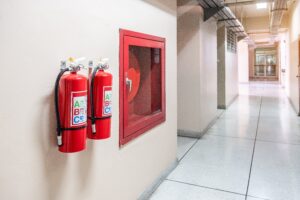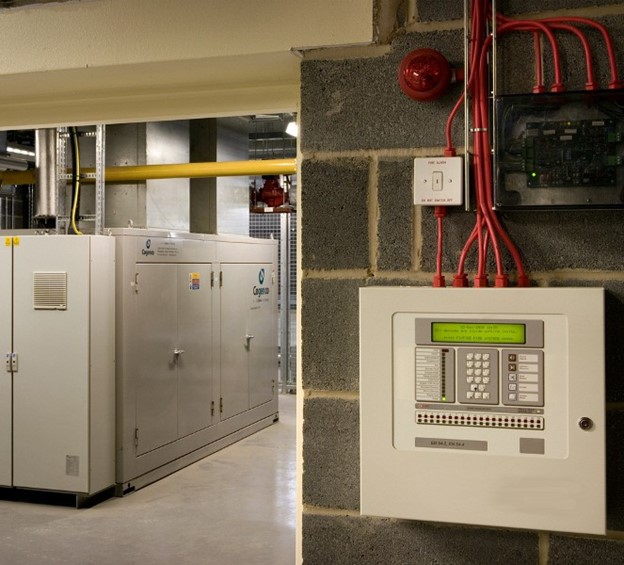
10 Tips for Fire Safety in Schools
This guide covers our Top 10 Tips for Fire Safety in Schools to ensure you haven’t missed off any of the really important, but easily overlooked facets of fire safety
Book your FREE, no-strings-attached Fire Safety Audit to ensure that you’re properly protected from the risk and comply with current fire safety legislation.
Get essential insights and updates
in fire safety – straight to your inbox!

Closed protocol fire alarm systems are proprietary systems that are designed, manufactured, and maintained by a single manufacturer or a limited group of manufacturers. They typically use unique communication protocols and components that are specific to the manufacturer, making it difficult to integrate devices or components from other manufacturers into the system. Maintenance and replacement parts must often be sourced from the original manufacturer, which can lead to higher costs and potential limitations in system flexibility.
Open protocol fire alarm systems, on the other hand, are designed to be more flexible and open to communication with a wider range of devices and components. This flexibility can make it easier to expand, upgrade, and maintain the fire alarm system, as components from various manufacturers can be integrated into the system more easily. Open protocol systems often offer more choices and competitive pricing for replacement parts and devices.
The choice between open and closed protocol fire alarm systems depends on various factors, including the specific needs of the facility, budget considerations, and the level of flexibility and expandability required. Open protocol systems are generally preferred for larger or complex installations where compatibility with a wide range of equipment and long-term cost considerations are important. Closed protocol systems may be chosen for simpler installations or when a particular manufacturer’s features and technology are preferred.
It’s essential to carefully consider the long-term implications of choosing either type of system, as this decision can have a significant impact on the life cycle and cost of the fire alarm system. Additionally, local building and fire codes may influence the choice of system, so it’s important to consult with relevant authorities and experts when designing and installing fire alarm systems to ensure compliance with safety regulations.

This guide covers our Top 10 Tips for Fire Safety in Schools to ensure you haven’t missed off any of the really important, but easily overlooked facets of fire safety

Fires are often unpredictable, destructive, and can cause massive loss of life. Understanding how fire works can help us prevent it, predict it, and control it. One of the most

Keep your festive season merry and bright with essential Christmas Fire Safety tips from Blazequel. From illuminating your home safely with holiday lights to ensuring your Christmas tree doesn’t become
Video Smoke Detection is perfect for a fast response to fires in high roofed buildings and harsh operating conditions.
Watch Smokecatcher detect smoke in an MSW storage building. The smoke is coming through from a fire in the adjoining storage area.
Watch Smokecatcher detect a fire in an SRF Storage bunker. Sadly, the alarm wasn’t responded to and the site lost a 4hr window of opportunity between smoke detection and flames appearing.
Video Smoke Detection overcomes the risks of stratification and other challenges for early fire detection in logistics and storage facilities.
Watch Fire Rover detect and suppress a fire in the waste bunker at an EFW facility!
See how the Fire Rover detects and suppresses this fire at a clients tipping hall. Note how the smok is spreading out at low leve, rather than rising. This is called ‘stratification’ and is one of the many reasons why roof-mounted smoke detection systems like beam detectors and HSSD is not suitable for many recycling applications.
Watch the Fire Rover detect and suppress a fire at a battery storage facility. This targeted and intellegent control makes the Fire Rover particularly well suited to high hazard storage applications.
Watch the Fire Rover tackle a battery fire in a tipping hall. Note how the exploding battery cells start three separate fires, which the operator individually suppresses (whilst avoiding the site operators in the vicinity).
Get essential insights and updates in fire safety – straight to your inbox!
